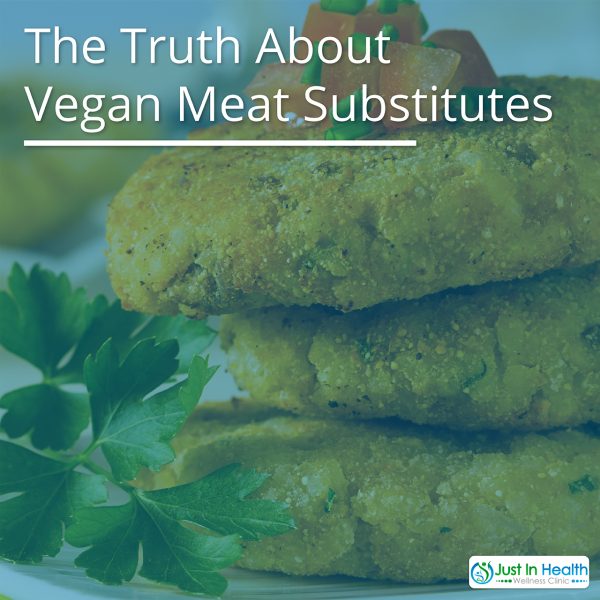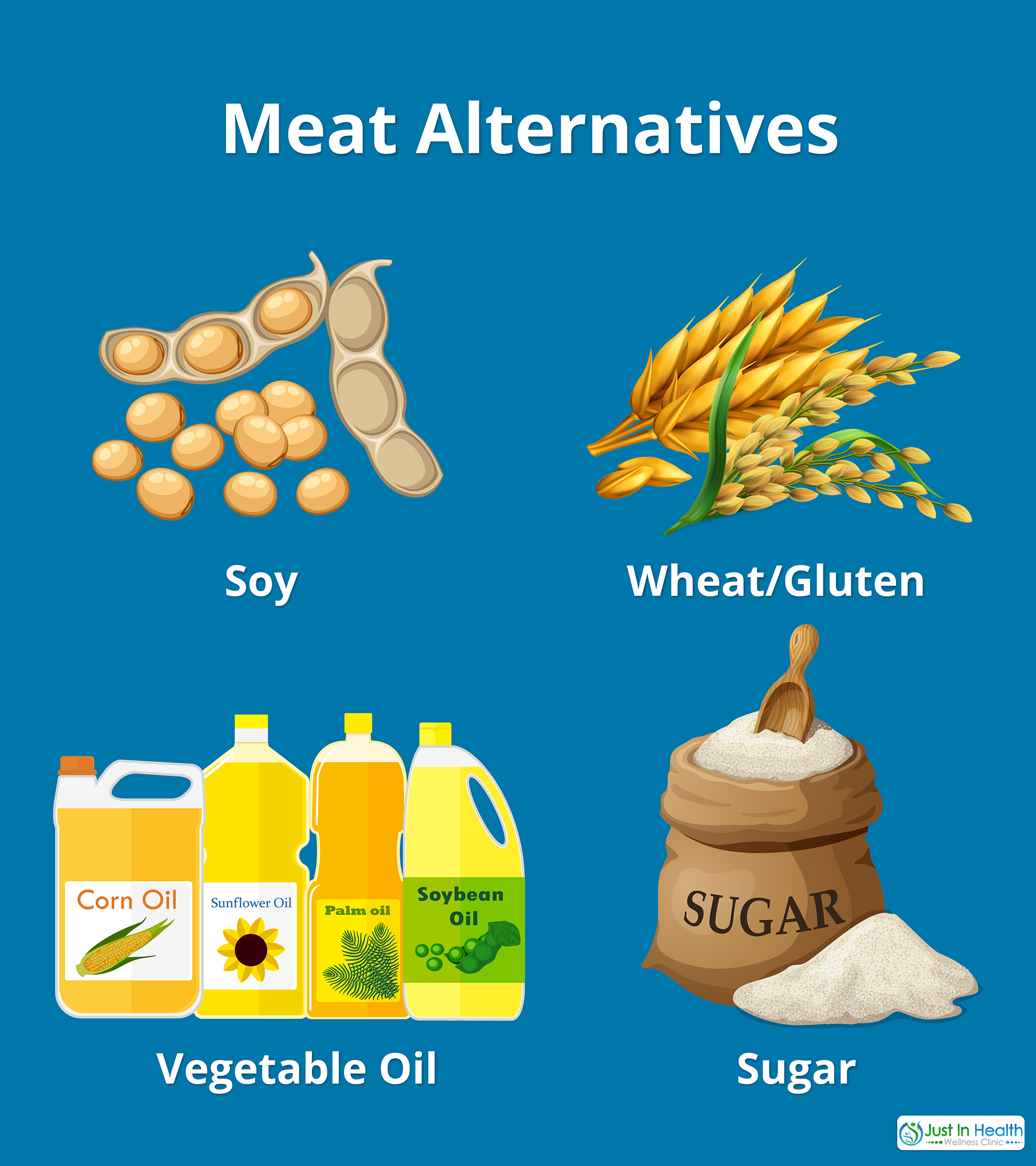

By Dr. Justin Marchegiani
The number of meat-alternatives has grown exponentially in recent years, all you have to do is walk into your local grocery store to see for yourself. But are these faux meats healthier and more environmentally conscious than eating the real thing?
Who is buying meat alternatives? These are targeted towards vegans and vegetarians, who also call their diet “plant-based”.
Some popular reasons for switching to a plant-based diet include:

Let’s look at burgers. A typical beef burger contains:
Now, here are just some of the ingredients in one of the most popular veggie burgers:
Are you struggling on a plant-based diet? Click here for help feeling your best, whatever your diet!
Many meat alternatives, like veggie burgers and sausages, are ultra-processed foods that contain soy, gluten, canola oil, artificial flavors, and chemical binders. Let’s take a closer look at the impact of some of these common ingredients:
A common concern for those on a meatless diet are nutritional deficiencies. Sadly, soy is commonly eaten by vegetarians and vegans, either as an ingredient in meat alternatives, and also as tofu. Soy is high in th antinutrient phytic acid, which inhibits nutrient absorption. This means that any meal containing soy is going to automatically have lower nutritional value. Iron, zinc, calcium, manganese, and magnesium are some of the nutrients that are prevented from being fully absorbed and utilized when you eat soy.
Soy is also high in lectins, which are linked to leaky gut, inflammation and autoimmune reactions. Additionally, over 80% of soy is genetically modified, which is a huge health issue, as well as massive environmental problem we will discuss later in this article.
In fact, gluten (like soy) is considered an antinutrient, and whether or not you have a diagnosed gluten sensitivity you’re probably going to be better off getting it out of your diet.
As an antinutrient, gluten blocks the absorption of essential vitamins and nutrients, can cause digestive issues like bloating, gas, and irregular bowel movements, and is linked to leaky gut. These effects can lead to more serious and chronic issues.
Additionally, vegetable oils tend to be low in beneficial saturated fat, and high in inflammatory omega-6. Soy, corn, canola, and other vegetable oils are correlated with obesity, oxidative stress, inflammation, and heart disease.
All of these ingredients are linked to weight gain, inflammation, brain fog, and other negative health issues that are unheard of from your standard grass-fed beef burger.
There are many vegetarians and vegans who choose this diet for reasons pertaining to the environment and animal rights. In fact, many university dining halls and otherwise meat-eating people around the nation have adopted “Meatless Mondays” to reduce their meat consumption one day a week. The truth is, the environmental and humane impacts of eating meat vs. eating plant-based are complicated.
I always advocate choosing grass-fed meat. It’s better for you, it’s better for the animal. While factory farming and feedlots are obviously horrible for everyone involved, choosing grass-fed, free-range beef is a much better option. In fact, happy cows help fertilize the land and maintain nutrient diversity of the soil. Without them, we would have depend on artificial fertilizers that throw the ecosystem, and our health, out of balance.
Harvesting the crops for the ingredients used in veggie burgers may not always be ecologically sound. Industrial farming practices oftentimes harm bees and other small creatures. While eating beef does sacrifice the life of the cow, it’s worth considering the lives lost to in the industrial practices involved in making meat-alternatives.
Another important note to consider, whether you eat meat or plant-based: As mentioned earlier, over 80% soy is GMO. The use of RoundUp, glyphosate, and other toxic pesticides is increasing. The damage it is doing to our health, the ecosystem, and the quality of food is undeniable. Monsanto, the creator of chemical Agent Orange used in the Vietnam War, is now taking over the world as a leading producer of GMO seeds and herbicides. This is a big topic worthy of its own article, but the takeaway I want you to have is that Monsanto crops are linked to cancer and DNA damage. As a vegetarian, this is especially important to realize, as many of the top GMO/glyphosate-sprayed crops are used excessively in meat alternatives and as vegan sources of protein. These include: soy, canola oil, corn, and sugar.
The choice to go vegan or vegetarian to protect the environment and animals is admirable. This article is meant to be thought-provoking, hopefully providing some food-for-thought for those who already are eating a plant-based diet make healthier choices, and providing an alternate viewpoint for those considering plant-based vs. meat-eating.
Still have questions about eating meat? Click here to talk to a professional!
https://www.ncbi.nlm.nih.gov/pubmed/1503071
https://www.ncbi.nlm.nih.gov/pmc/articles/PMC1115436/
https://www.ncbi.nlm.nih.gov/pubmed/18558591
https://sciencebasedmedicine.org/a-balanced-look-at-gluten-sensitivity/
https://www.ncbi.nlm.nih.gov/pubmed/1868922
https://www.ncbi.nlm.nih.gov/pubmed/18650557
https://blog.bulletproof.com/dr-cate-shanahan-376/